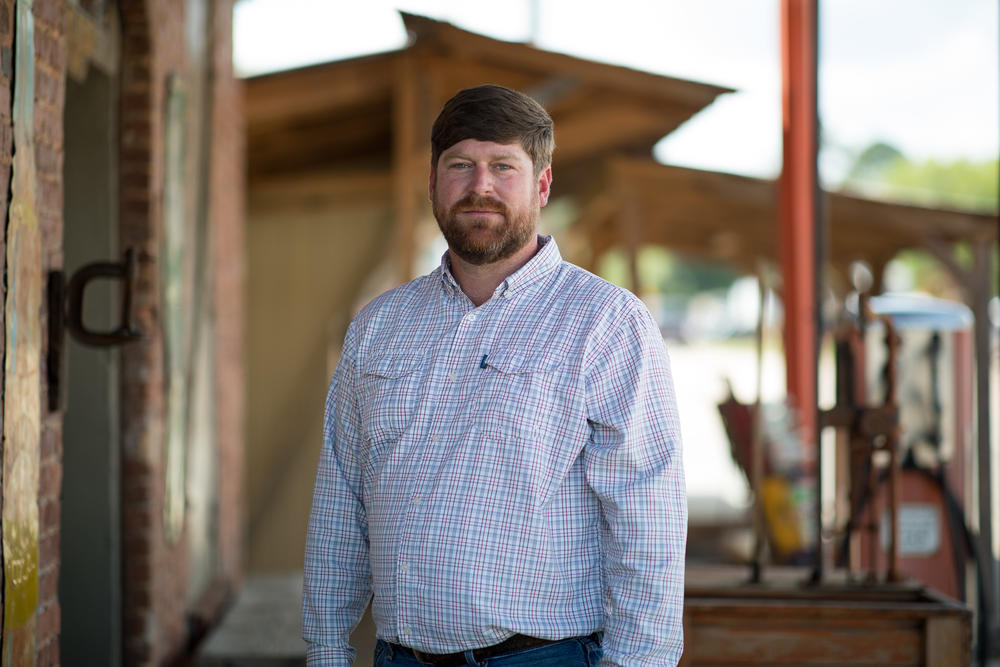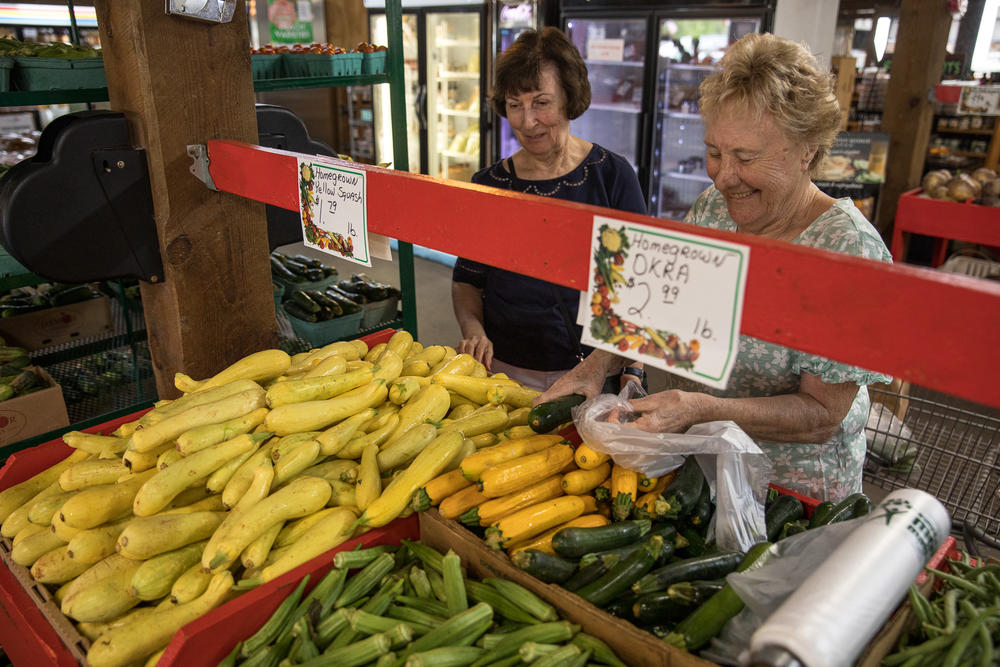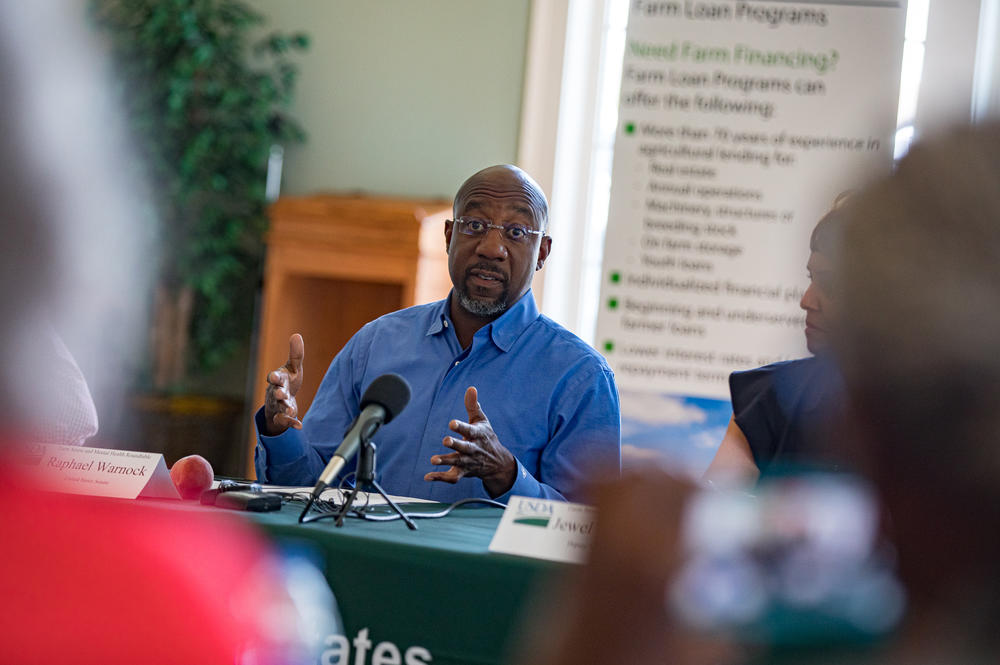
Caption
Cattle farmer Will Bentley, president of the Georgia Agribusiness Council, stands for a portrait in Musella, Ga., after a roundtable with U.S. Sen. Raphael Warnock on the mental health of Georgia's farmers.
Credit: Riley Bunch / GPB News




